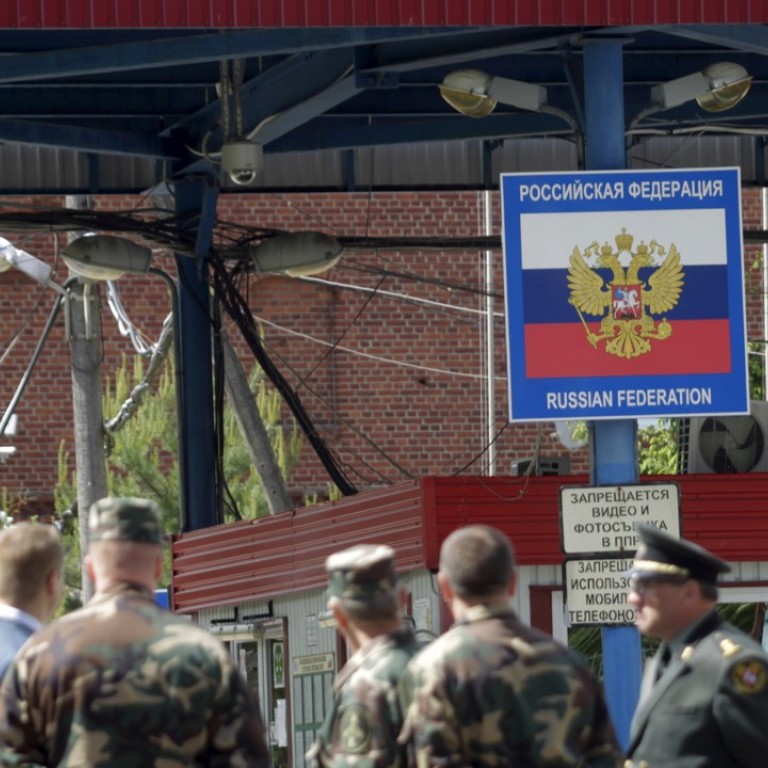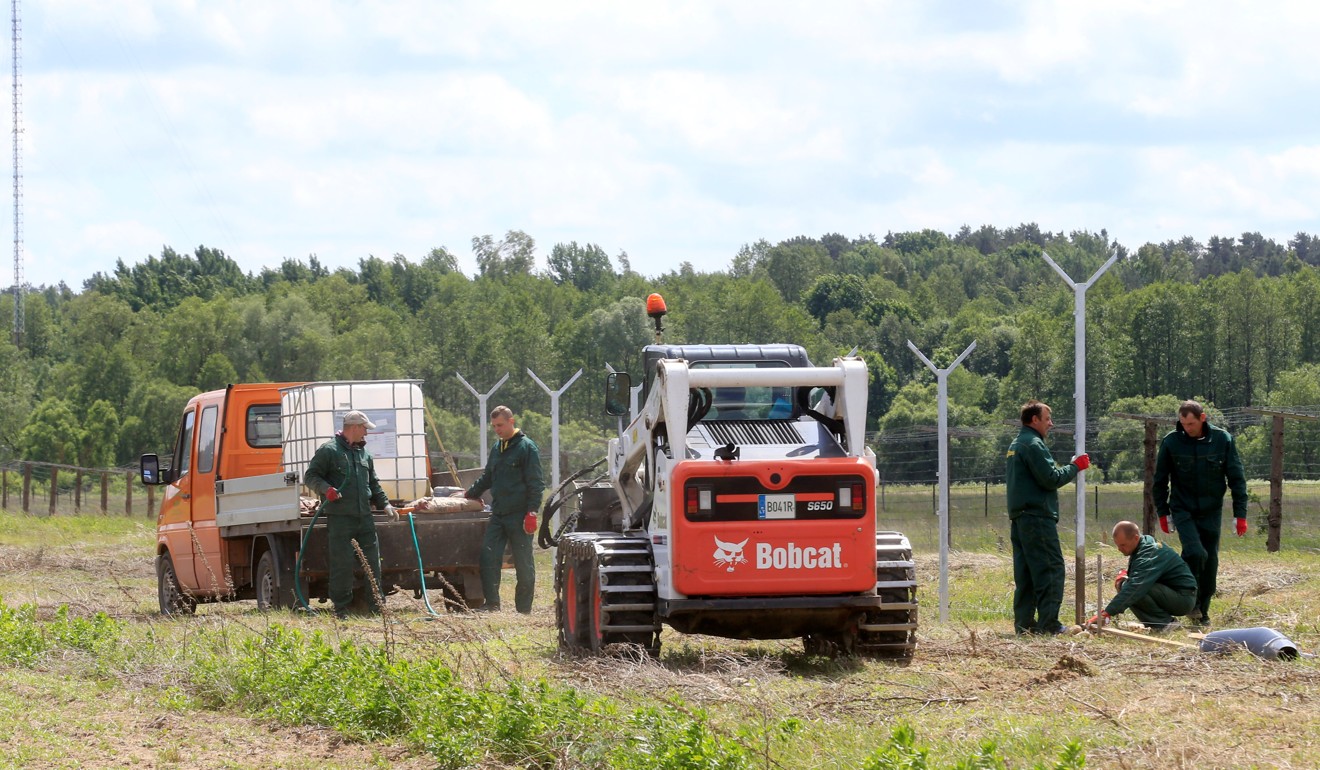
Lithuania puts up a fence on its border with Russia’s Kaliningrad exclave
Lithuania on Monday began building a wire fence on the border with Russia’s highly militarised Kaliningrad exclave to boost security and prevent smuggling amid tensions with Moscow.
Construction of the 45-kilometre (28-mile) long, two-metre high fence will cost 3.6 million euros (US$4 million) and will be finished by the end of the year, the interior ministry said.
Interior Minister Eimutis Misiunas launched the construction by helping to install the first post some 200 kilometres west of the Baltic EU state’s capital Vilnius.
“The fence will help Lithuania to fight smuggling and illegal state border crossings,” the minister’s spokesman Karolis Vaitkevicius said. “If we want to have a well functioning Schengen (passport-free) zone, we have to have a protected external EU border.”
The stretch of border is a popular route for cigarette smugglers to ferry contraband from Kaliningrad into Lithuania, a eurozone member of 2.8 million.

But there are also deeper security concerns.
According to Lithuania’s intelligence agency, Russia is capable of launching an attack against the Baltic states with just 24-48 hours notice.
The agency has also warned of “likely” provocations -- including border breaches -- during large Russian military exercises planned for September in nearby Belarus.
Driving up tensions last year, Moscow deployed nuclear-capable Iskander missiles into Kaliningrad, sandwiched between Nato member Lithuania and Poland.
Lithuania reinstated limited military conscription and increased its military budget in the wake of Russia’s 2014 annexation of Crimea from Ukraine.
Nato allies have also deployed nearly a thousand soldiers in each of the Baltic states and Poland, all of which have a history of tension with their communist-era master Russia.
Moscow strongly denies any territorial ambitions, and critics say the fence is a waste of money that provides no real security.
“From the national security standpoint the fence has no meaning. It cannot stop aggression on land or from the air,” Lithuania’s former intelligence chief Mecys Laurinkus wrote in a column for the Lietuvos rytas newspaper.

.png?itok=arIb17P0)